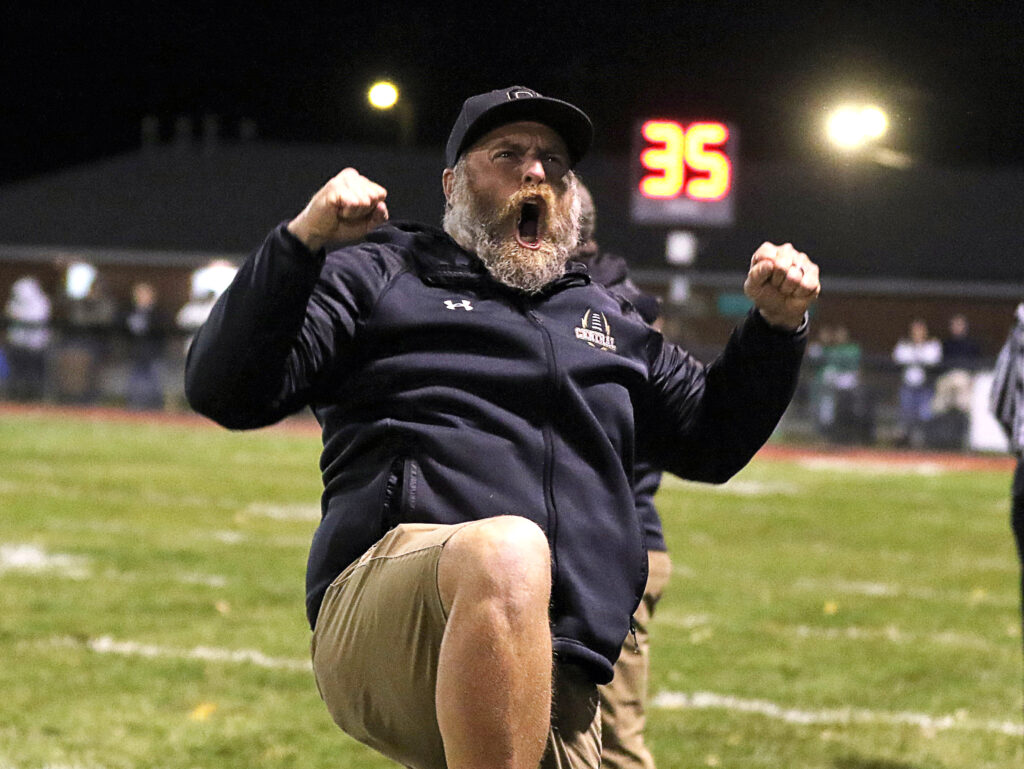Transactional vs. Transformational Growth in Athletics: Why Positive Coaching Leads to Lasting Change

In the world of sports coaching, two distinct approaches to athlete development have emerged: transactional growth and transformational growth. As we explore these concepts, it becomes clear that positive coaching methods are far more effective in fostering long-term success and personal development among athletes. Let's delve into the differences between these approaches and explore why coaches should prioritize transformational growth through positive coaching techniques.
Understanding Transactional Growth in Athletics
Transactional growth in sports is rooted in a simple exchange: the athlete performs a desired action to avoid punishment or gain a reward. This approach is often characterized by:
- Punitive measures like running laps for mistakes
- Short-term compliance from athletes
- Focus on immediate results rather than long-term development
- A coach-centered environment where the coach's authority is paramount
While transactional methods may yield quick results, they often fail to create lasting change or foster a genuine love for the sport. As Coach Kelsey Mueller of the Normal West Wildcats volleyball team points out, "Using running as punishment results in transactional growth, which does not lead to meaningful transformation in athletes."
The Power of Transformational Growth
Transformational growth, on the other hand, focuses on creating profound changes in an athlete's mindset, behavior, and even identity. This approach is characterized by:
- Positive reinforcement and constructive feedback
- Emphasis on personal development and long-term success
- A player-centered environment that encourages autonomy and self-motivation
- Building strong coach-athlete relationships based on trust and mutual respect
Coach Mueller emphasizes the significance of positive coaching in creating a supportive environment that fosters mental resilience and personal development. This approach aligns with transformational growth, leading to more sustainable and meaningful changes in athletes.
Why Positive Coaching Leads to Lasting Change
- Builds Intrinsic Motivation: Positive coaching techniques help athletes develop a genuine love for the sport and a desire to improve for their own satisfaction, rather than to avoid punishment.
- Enhances Mental Resilience: By focusing on growth and learning from mistakes, positive coaching helps athletes develop the mental toughness needed to overcome challenges both on and off the field.
- Improves Coach-Athlete Relationships: A positive approach fosters trust and open communication, creating a more collaborative and effective learning environment.
- Encourages Risk-Taking and Creativity: When athletes aren't afraid of punishment for mistakes, they're more likely to take risks and develop creative solutions, leading to innovation and growth in their sport.
- Promotes Holistic Development: Positive coaching methods often address not just athletic performance, but also personal growth, leadership skills, and character development.
Implementing Positive Coaching for Transformational Growth
Coaches looking to shift towards a more positive, transformational approach can consider the following strategies:
- Focus on Effort and Progress: Celebrate small wins and improvements, not just final outcomes.
- Provide Constructive Feedback: Instead of punitive measures, offer specific, actionable feedback to help athletes improve.
- Create Opportunities for Player Leadership: Encourage athletes to take ownership of their development and contribute to team decisions.
- Emphasize Learning from Mistakes: Frame errors as opportunities for growth rather than reasons for punishment.
- Develop Individual Relationships: Take time to understand each athlete's unique motivations, strengths, and areas for improvement.
The Long-Term Impact of Transformational Growth
By prioritizing transformational growth through positive coaching, athletes are more likely to:
- Develop a lifelong love for their sport
- Build transferable skills that benefit them beyond athletics
- Become more resilient in the face of challenges
- Achieve higher levels of performance and success
- Contribute positively to team culture and dynamics
As Coach Mueller notes, "Positivity can revolutionize the coaching experience and empower athletes to excel both on and off the court."
Conclusion
The shift from transactional to transformational growth in athletics represents a significant evolution in coaching philosophy. By embracing positive coaching techniques, coaches can create an environment that not only improves athletic performance but also fosters personal growth, mental resilience, and a genuine passion for the sport. As we continue to understand the profound impact of coaching methods on athlete development, it's clear that the path to lasting change and success lies in the transformative power of positive coaching.
Ready to Transform Your Coaching Approach?
If you're inspired to shift towards a more positive, transformational coaching style, you don't have to go it alone. As a certified professional coach specializing in mental toughness and resilience, I can help you develop strategies to implement these concepts with your team.
View our Coach-Coaching Services
Whether you're looking to:
- Refine your coaching philosophy
- Learn specific positive coaching techniques
- Overcome challenges in team dynamics
- Enhance your own leadership skills
I'm here to support your journey towards becoming a transformational coach.
Contact me today at coachthomann@gmail.com to schedule a free consultation and start forging the mental mettle of your athletes. Together, we can create lasting, positive change in your coaching practice and in the lives of your athletes.
Are you ready to forge your mettle?
More From Mental Mettle
.jpg)
Episode 99: The Right Way to Fail in Hoops with Brandon Heyen

Episode 98: Less Scroll, More Soul: The Benefits of a Digital Detox

Episode 97: Training the D1 Body and Mind with Terrell Washington of Grindhouse Sports Training

From Small-Town Star to Big Ten Football: Lessons on Overcoming Adversity

Episode 96: Roots of Resilience: How Team Culture Built Illini Bryce Barnes

